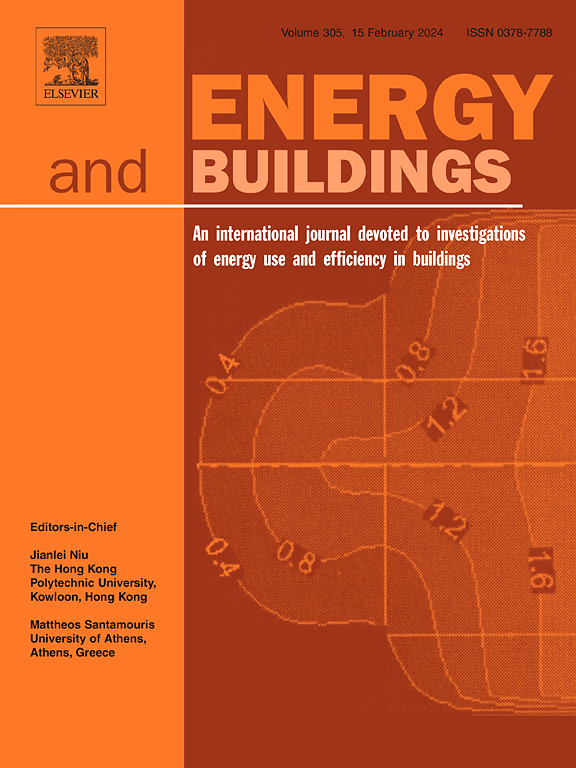Optimal scheduling strategy of household electrical equipment based on scenario dynamic modeling
IF 6.6
2区 工程技术
Q1 CONSTRUCTION & BUILDING TECHNOLOGY
引用次数: 0
Abstract
Household electricity is highly unpredictable, necessitating a deep understanding of its impact on energy scheduling for optimal resource allocation and economic gains. This issue’s complexity can lead traditional optimization methods to converge on suboptimal solutions. In this study, the dynamic Copula (DC) model is used to construct the dynamic correlation between power consumption characteristics, and the Monte Carlo (MC) method is used to generate multiple power consumption scenarios to cope with the uncertainty of user behavior. Then, the optimal scenario set is selected through the average distribution error (ADE) to participate in the subsequent scheduling. In addition, based on the established equipment operation characteristic model, the electricity cost and load peak-to-average ratio (PAR) are comprehensively considered. The Improved Dynamic search multi-objective particle swarm optimization (IDSMOPSO) is introduced to optimize the running time of the equipment. Taking the electricity consumption of a family in Xi’an as an example, the results show that the algorithm is significantly better than the other two improved algorithms in performance. Meanwhile, the electricity cost of the family was significantly reduced by 17.09 %, and the PAR value was also reduced by 31.59 %, which realized the economic operation of household electricity.
基于情景动态建模的家用电器设备优化调度策略
家庭用电具有很强的不可预测性,因此需要深入了解其对能源调度的影响,以优化资源配置,提高经济效益。这一问题的复杂性会导致传统优化方法收敛于次优解。本研究采用动态 Copula(DC)模型构建功耗特征之间的动态相关性,并采用蒙特卡罗(MC)方法生成多个功耗场景,以应对用户行为的不确定性。然后,通过平均分布误差(ADE)选择最优场景集参与后续调度。此外,基于已建立的设备运行特性模型,综合考虑了电费和负荷峰均比(PAR)。引入改进动态搜索多目标粒子群优化(IDSMOPSO)来优化设备的运行时间。以西安某家庭用电为例,结果表明该算法在性能上明显优于其他两种改进算法。同时,该家庭的电费大幅降低了 17.09%,PAR 值也降低了 31.59%,实现了家庭用电的经济运行。
本文章由计算机程序翻译,如有差异,请以英文原文为准。
求助全文
约1分钟内获得全文
求助全文
来源期刊

Energy and Buildings
工程技术-工程:土木
CiteScore
12.70
自引率
11.90%
发文量
863
审稿时长
38 days
期刊介绍:
An international journal devoted to investigations of energy use and efficiency in buildings
Energy and Buildings is an international journal publishing articles with explicit links to energy use in buildings. The aim is to present new research results, and new proven practice aimed at reducing the energy needs of a building and improving indoor environment quality.
 求助内容:
求助内容: 应助结果提醒方式:
应助结果提醒方式:


